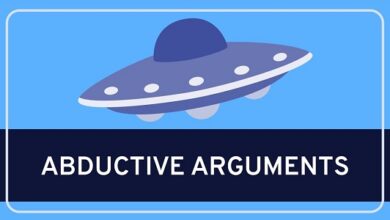Factual or declarative knowledge
refers to the set of symbolic (propositional) descriptions referring to the current state of the world or one of its domains. In this article we will describe the Declarative and procedural knowledge.
It is a complex knowledge, of a declarative type, consisting of three elements/components:
- General or encyclopedic knowledge.
- Knowledge of the communicative situation where the speech is made.
- Knowledge of the interlocutors’ world models.
Procedural knowledge
or inference engine that allows relating operators and declarative knowledge. It refers to a set of rules defined in the form of condition-action pairs similar to those described in production systems. The parameters that define and determine the actions are:
- The pre-conditions or conditions of applicability necessary for the action to take place.
- The effects derived from the execution of the action.
- The means that allow the system to execute the action.
The processes
The identification of the types of knowledge is necessary, but not sufficient for a cognitive explanation of the production of discourses. Thus, it is necessary to identify the processes of use of these representations and the way in which they intervene in real-time. These processes are:
- The production of oral monologues.
- The production of monologues or written texts.
- Face-to-face conversations.
- Conversations on the phone.
Basic lexicon
Dialogue / monologue
- According to Van Dijk, the discourse production process begins with the elaboration of a general representation (macro propositions) that contains information about the global speech act or communicative intention and the main topic to be developed in the speech.
- In oral monologues, the speaker must plan the informative content and the sequential organization of the discourse (the problem of continuity, coherence, and relevance); establish internal control systems for their discursive performance, produce their speech in a continuously advancing temporal sequence that implies a limited permanence and access of the messages in memory.
Speech / text
- The written composition is a process subject to a greater degree of control by the speaker than oral composition since the latter has more time to organize and correct their messages. The text is physically present and accessible to the subject. The speaker has a single channel for his speech (writing), which means that he does not have prosodic supports or gestures, but in more elaborate linguistic forms.
- The general phases of development of the written composition process are planning of the objective and format of the text, ideation of a relevant topic, the definition of the specific contents and their order, expression, and sequential development of the sentences of the text in a local and global coherent way.
Difference between procedural and declarative knowledge
| NO | PROCEDURAL KNOWLEDGE | DECLARATIVE KNOWLEDGE |
|---|---|---|
| 1 | It is also known as interpretive knowledge. | It is also known as descriptive knowledge. |
| two | Procedural knowledge means how a particular thing can be done. | While Declarative Knowledge means basic knowledge about something. |
| 3 | Procedural knowledge is often not used means it is no longer popular. | Declarative knowledge is more popular. |
| 4 | Procedural knowledge cannot be communicated easily. | Declarative knowledge can be easily communicated. |
| 5 | Procedural Knowledge is generally process-oriented in nature. | Declarative knowledge is data-driven in nature. |
| 6 | In Procedural Knowledge, debugging and validation is not easy. | In Declarative Knowledge, debugging and validation is easy. |
| 7 | Procedural knowledge is less effective in competitive programming. | Declarative knowledge is most effective in competitive programming. |
